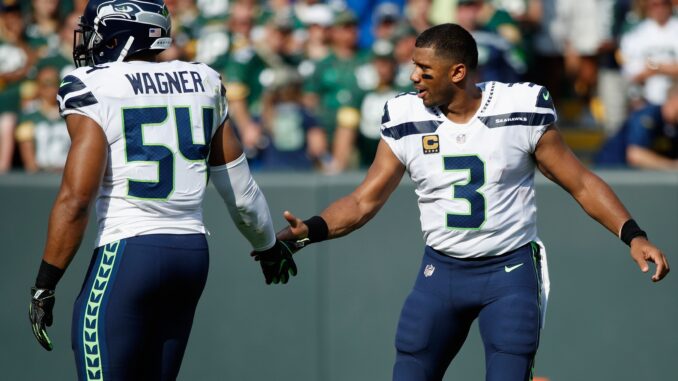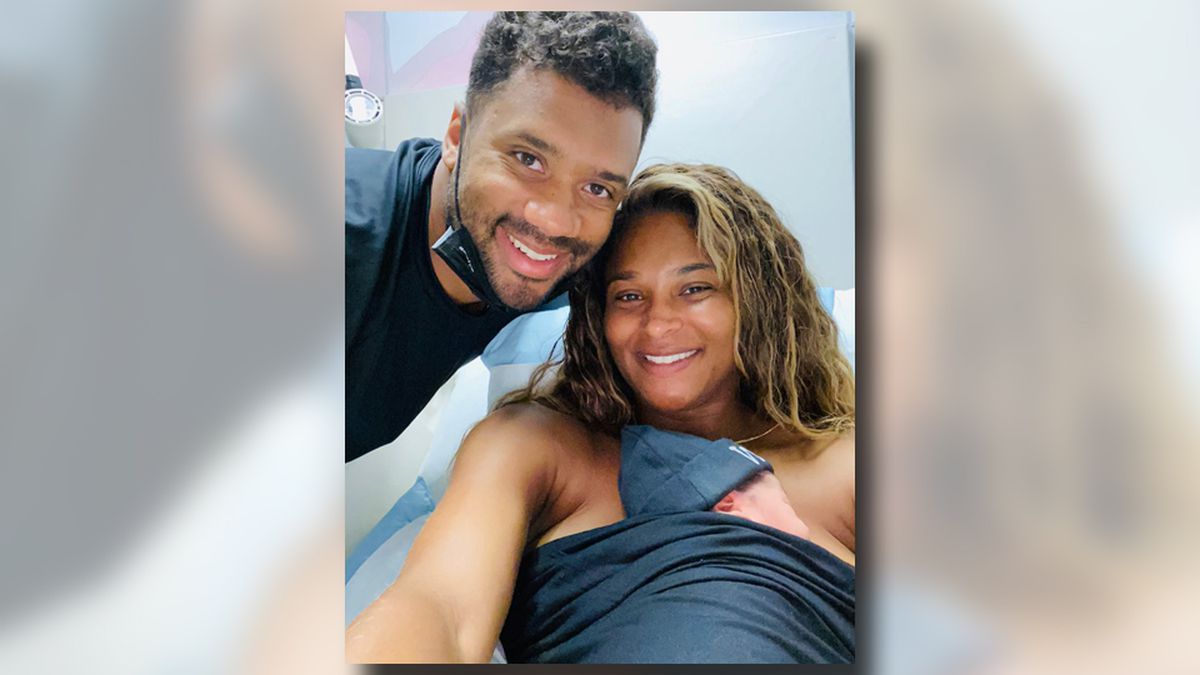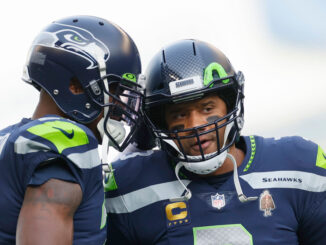
Well, that was that. The most successful era of Seahawks football came to a close when the club decided to part with two of its franchise icons, quarterback Russell Wilson and linebacker Bobby Wagner. Both headlined their respective sides of the field and were the last two players left on the roster that had hoisted the Lombardi trophy in 2013.
Speculation has been raging like wildfire on who will step in for these two, especially regarding the possible Russell Wilson replacement. Seattle has been bandied about as a potential trade destination for just about every other disgruntled QB in the league. Still, it seems unlikely that the Seahawks would seriously get involved in negotiations.
Instead, the Seahawks are opting to really research what this current draft has to offer. At #9, with no surefire franchise star in the draft, they should have their pick of top guys. The only two that have been touted as potential top-10 picks are Malik Willis from Liberty and Kenny Pickett from the University of Pittsburgh. Willis has been compared to Josh Allen, an incredibly raw but toolsy player who has a cannon arm and A+ running game. But he played against low-tier schools at Liberty and struggled with accuracy issues. He’d be a project from the start, but a rebuilding roster could be an ideal fit.
Pickett is the opposite, showing excellent poise and precision while leading Pittsburgh to an 11-3 record. He isn’t a physically superior player but has excellent feel and game savvy. He can make any throw, stand tall in the pocket, or hit receivers while on the move. Pro Football Focus has called him the most pro-ready quarterback in this draft, but the limitations of his arm strength and athleticism might cap how good he can be. Think of the New York Giant’s Daniel Jones but without the turnover issues.
Either brings instant excitement and would allow fans to buy into a new signal-caller immediately, but neither are sure bets to lead a Super Bowl contender. Instead, it might be a shrewder move to draft a surefire top ten talent that is perceived to be a positional star. Instead, the Seahawks could use one of their two high second round picks to roll the dice on a lower-tier QB, but one that could have just as high of potential as Willis or Pickett. Cincinnati’s Desmond Ridder has a good arm, good pocket presence, and good mobility – but needs time to improve his ball placement. University of North Carolina’s Sam Howell has a rocket arm but does not yet have NFL processing speed. Matt Corral of Ole Miss has all the tools but is oft-injured. These three could be there, and all of them have a skill set that could complement Tyler Lockett and DK Metcalf.
These options are a ton more palatable than Drew Lock (who the Seahawks acquired from the Broncos in the Russell Wilson trade) and Geno Smith (Seattle’s longtime back-up). Geno already made his “case” to be the Seattle starter when he replaced Wilson for a four-game stretch in the middle of the season. During that time, he tossed five touchdowns to a single interception, completed 68.4% of his attempts but only led the Seahawks to a single win against the hapless Jacksonville Jaguars. The offense was minimal with him at the helm, as the team only averaged about 175 passing yards per game. He also had multiple opportunities to lead game-winning or tying drives that either went nowhere or ended in a turnover. Seattle would be bringing a knife to a gunfight if they rolled with Smith.
Lock has shown some flashes but has been marred by incredible inconsistency early on. After a reasonably promising start in Denver, where Lock led the team to a 4-1 finish during his rookie season, he cratered in his first full season as a starter in 2020. In 13 games, Lock threw 16 touchdowns to 15 interceptions, fumbled eight times, and only completed 57.3% of his passes. He has shown to be turnover prone and struggled to produce consistent offense. While younger than Smith, Lock would have to make an incredible leap in his fourth season to justify being the starter.
On the other side of the ball, the question is less who will replace Bobby Wagner but how will they replace the six-time all-pro. Wagner picked up an injury late in the season against the Detroit Lions, allowing longtime back-up Cody Barton to step in as the starting middle linebacker. He performed admirably, helping Seattle to win their last two games. Both Barton and Jordyn Brooks will be playing a TON of snaps as off-ball linebackers. But with the signing of Uchenna Owusu and the emergence of Darrell Taylor, it seems like Seattle is primed to switch to a four-linebacker system – with both Taylor and Owusu primarily operating as pass rushers. The recent release of Carlos Dunlap, Benson Mayowa, and Kerry Hyder Jr reinforces that idea, as all three primarily play as defensive ends rather than outside linebackers.
In essence, Seattle will be swapping one player for two as both Barton and Brooks will be sharing Bobby’s responsibilities in the middle of the field. While Wagner was the primary signal-caller on defense, Barton has been on the team for three seasons, while Brooks has been a primary player for the last two seasons. Both are younger but have a lot of room to grow in replacing Wagner’s guile. Their ability to keep the Seattle defense organized in-game will remain a question mark until the start of the season.
In one day, Seattle fans were forced to completely change how they watch their team. With Russell gone, the offense will most likely emulate the run-run-pass model they went to during Geno Smith’s limited tenure as the starter. On defense, the line of scrimmage will look completely different. Three-down lineman means bigger, hybrid lineman such as Quentin Jefferson or Poona Ford occupying the offensive line, with smaller and quicker players like Taylor coming off the edge.
All of that change will mean a lot of losses, especially with an unheralded QB like Lock, Smith, or Willis at the helm. That is to be expected with the loss of Wilson. But the loss of Wagner means the other side of the ball will have to relearn how to communicate as well. Losing both of their signal-callers means the Seahawks have a long way to go to find their new identity.



